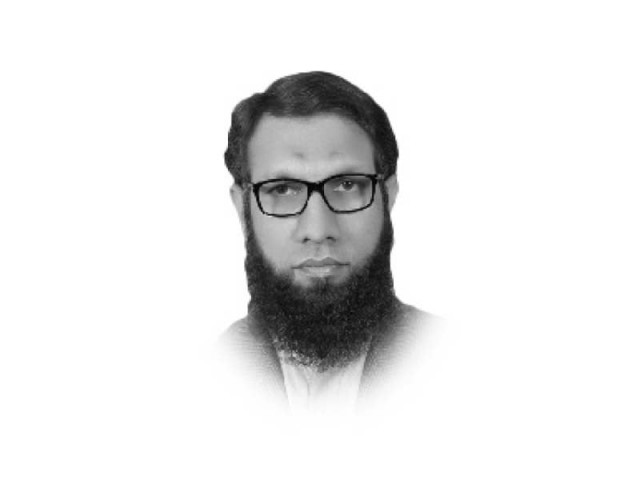Repositioning the Muslim Ummah
Besides conflicts, the Muslim world is haunted by a feeling of inferiority complex

If Allama Iqbal is to be believed, the social architecture of Muslim Ummah is unique. Since the Ummah does not exist today as a vibrant and integrated entity, one should not expect too much from it in giving the world a lead role in sciences, arts, and spirituality. The Ummah, however, had a glorious period which – despite many attempts by Orientalists and others to undo through historical distortions -- continues to provide an ideal model for social reformation in the Muslim world.
Spiritual development during the era of Prophet Muhammad (peace be upon him) and unprecedented progress in the scientific fields during the Abbasid’s period put the Ummah in enviable position. It started its journey as a lone voice of an unlettered Prophet (peace be upon him) living in the rugged and desert region of Makkah and reached its zenith in late 15th century before ascendancy of the West.
The formation of Ummah was, however, not accidental; it came about after conscious and strenuous efforts of the Prophet (peace be upon him). He raised the community in a way that reflected a firm belief in one God, consciousness of the life hereafter, and emphasis on social justice. On various occasions, he explicitly outlined its purpose and structure and the role every individual Muslim was supposed to play for its preservation and consolidation. About its unity, the Prophet (peace be upon him) is reported to have said, “the relationship of one believer with another is like the bricks of a building each strengthening the other,” and that “the example of the believers in their affection, mercy, and compassion for one another is that of a body. When there is pain in any part, the whole body reacts with sleeplessness and fever.” The Quran says, “The believers are not but a single brotherhood.”
Threat to the Ummah is not that Muslims could never have conflicts or difference of opinion. Islam recognises individual discretion, cultural differences, and creation of dominions based on administrative requirements. What is actually abhorrent in Islam is the creation of divisions on the basis of colour, race, language, or sect such that the collective interests of the Ummah are compromised. Majority of Muslim states today are in reality nation states pursuing strategic goals that undermine the unity of Ummah. More tragic is the fact that their political ambitions and historical rivalries have led to deadly wars among them. From Morocco to Malaysia, no Muslim country is prepared to think beyond its national interests and most often fight with one another for reasons that Islam regards insignificant. Most unfortunate is the fact that there is no mechanism within the Muslim world to resolve their political and religious differences. OIC has failed to provide the much-needed platform for uniting and mobilizing the Ummah.
Besides conflicts, the Muslim world is haunted by a feeling of inferiority complex. One certainly feels frustrated and humiliated when one sees no significant contribution of Muslims in natural sciences (for reference see the list of Nobel laureates in biology, chemistry, and physics). It is also always shocking when one looks at the ranking of Muslim countries in Human Development Index and reads reports of the Transparency International. The voice of Muslim countries, representing about two billion Muslims in the UN, hardly matters in affecting the course of events shaping the world.
Muslims in general attribute this moribund role of the Ummah to corrupt rulers and pedantic religious leaders who, they think, have deliberately created conditions to enslave the hearts and minds of people. Rulers in the Muslim world have done everything they could to amass wealth and power for perpetuating their rule rather than investing in human development and building institutions. Religious leaders, on the other hand, have failed to provide solutions to emerging problems.
Islam teaches renewal of faith in Allah and the life hereafter as the foundation for ethical society to emerge. It also exhorts its followers to reflect and ponder in the universe in order to appreciate and avail the favours of Allah. In other words, the Ummah needs to work on its spiritual foundation and scientific approach to rise on the global horizons again.















COMMENTS
Comments are moderated and generally will be posted if they are on-topic and not abusive.
For more information, please see our Comments FAQ